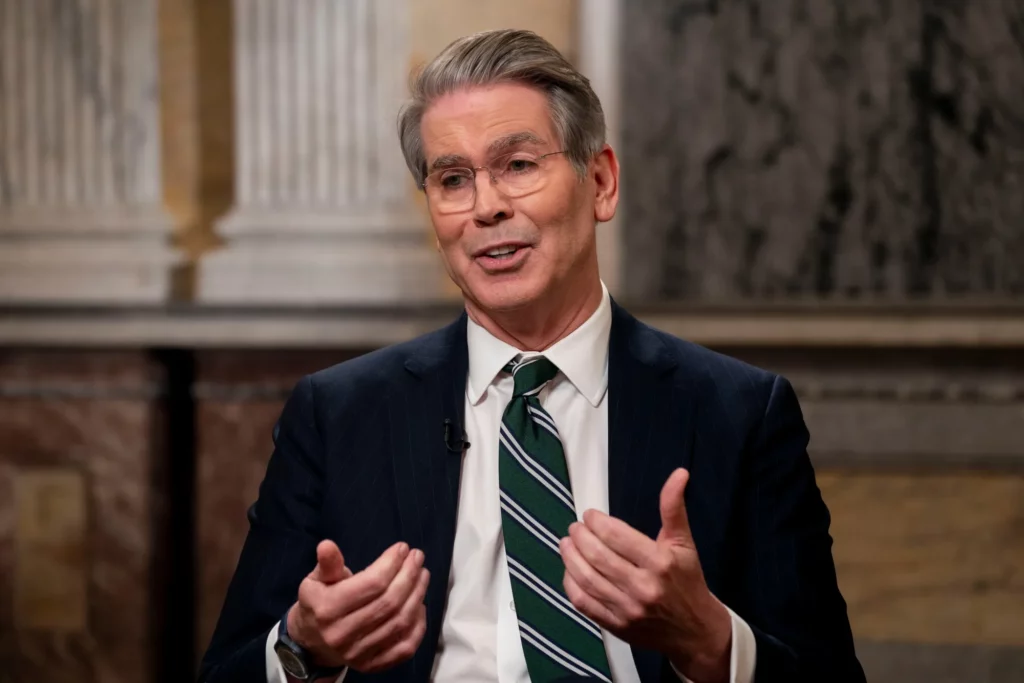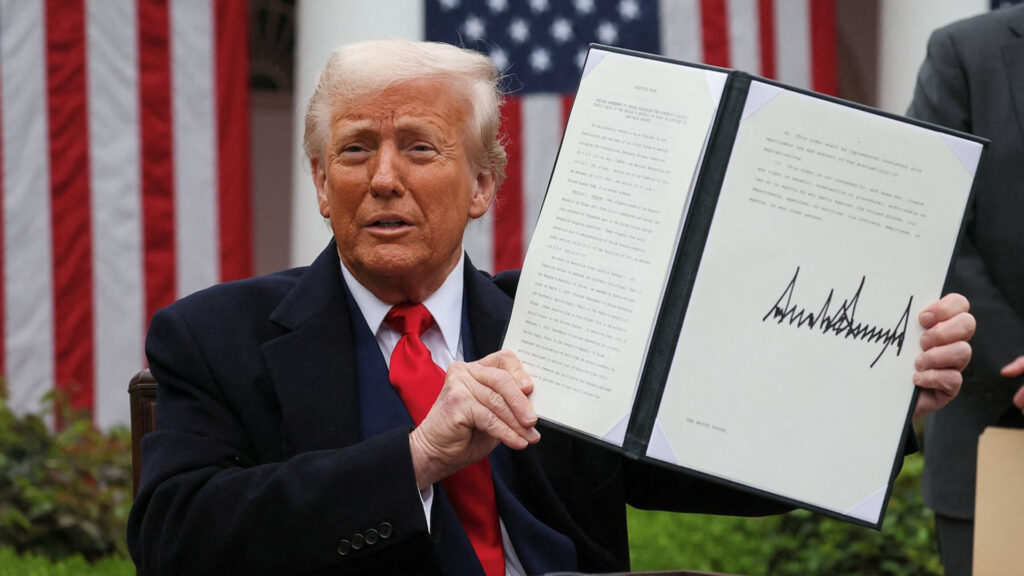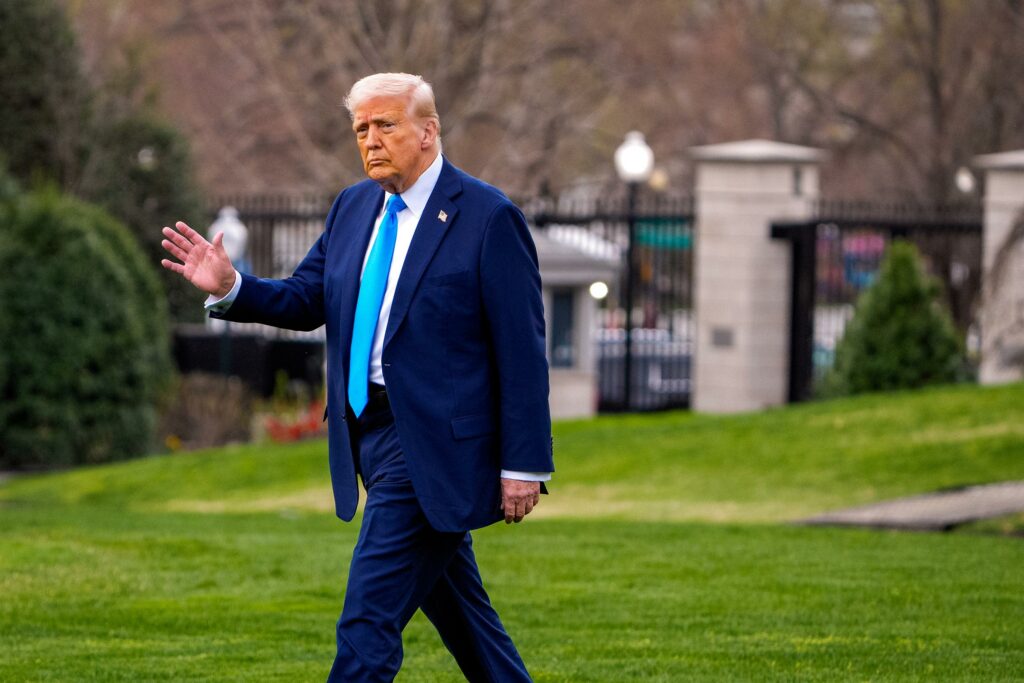Standing outside the White House, Scott Bessent, the 79th Secretary of the Treasury, welcomed listeners to a remarkable day of economic reflection, strategic foresight, and political conviction.
The All-In podcast hosts, alongside high-profile guests like Elon Musk and David Sacks, spent the afternoon in discussion with Bessent about the United States’ economic direction, debt, and deficits. Bessent, a veteran macro investor with roots tracing back to Yale and mentorships under Jim Rogers and Stan Druckenmiller, laid out his vision not just for Treasury reform but for national renewal.
Highlights
- The urgent need to reduce federal debt without triggering a recession.
- Repositioning the U.S. economy through deregulation, strategic tariffs, and private-sector reinvigoration.
- Government deleveraging paired with private sector releveraging.
- Plans to revamp Social Security into a sovereign wealth fund.
- Deregulating the banking system to unleash small business growth.
- Restoring the American Dream with wage growth, affordability, and manufacturing jobs.
From Markets to Macroeconomics: The Journey of a Risk Expert
Bessent’s financial career began under Jim Rogers, eventually rising to prominence at Soros Fund Management during the famed short of the British pound in 1992. This experience instilled in him the principles of macroeconomic forecasting, risk calibration, and the psychological resilience needed to act decisively. His belief: “If something is unsustainable, it will eventually stop.”

The Debt Dilemma: Deficits Without War or Recession
The conversation turned serious with a critique of the Biden administration’s fiscal policy. Bessent expressed concern about unprecedented stimulus during economic stability, leading to a dangerous equilibrium of perpetual spending and looming tax hikes.
“This is the first time we’ve seen this level of deficit without being in a recession or a war,” Bessent warned, arguing that these policies trap the nation in a European-style malaise.
National Debt Clock – U.S. Real-Time Tracker
The Three-Leg Plan: Resetting the Economic Order
Controlled Spending Cuts
- Gradual return to a 3% deficit-to-GDP ratio by 2028.
- Targeting contractor bloat and inefficient government labor.
- Emphasizing government efficiency, not extinction.
Reinvigorating Main Street
- Restructuring international trade with targeted tariffs.
- Onshoring critical manufacturing sectors.
- Promoting low and predictable taxes, minimal regulation, and cheap energy.
Deregulating Finance for Releveraging
- Repealing restrictive Basel rules and capital charges.
- Empowering community banks, which provide 70% of farm and 40% of small business loans.
Fixing the Financial Feedback Loop
Bessent called for collaboration with the Federal Reserve while reinforcing its independence. However, he was candid about missteps in regulation, arguing that an overzealous Fed and FDIC environment has overburdened smaller banks.
He floated changes like removing the supplementary leverage ratio to allow banks to buy treasuries without penalization, estimating it could save $30–70 billion annually.
Restoring the American Dream: Housing, Wages, and Hope
According to Bessent, a healthy economy must support upward mobility. He blamed overregulation, inflationary policies, and housing scarcity for the erosion of the American Dream. He emphasized that deregulation and market-led recovery are essential.
Jonathan Haidt’s work on happiness was cited: People crave progression. Thus, a revitalized economic model must allow people to work fewer jobs, own homes, and build net worth.
On Social Security: From Liabilities to National Wealth
One of the more radical ideas discussed was transforming Social Security into a sovereign wealth fund. Instead of Treasuries, the fund could invest in the American economy itself. Baby bonds and equity investments could allow every American to participate in national prosperity.
Social Security Trustees Report (2024)
The Role of Tech, Transparency, and Treasury
Bessent aims to use technology and whistleblower insights to clean up IRS inefficiencies. With AI and automation, the IRS could become customer-first, not politically weaponized.
His broader goal? Eliminate waste, modernize systems, and boost revenue without raising taxes. As he puts it: “Create assets, not just debt.”
Final Thoughts: A High-Stakes Transformation
Scott Bessent’s economic vision is bold, comprehensive, and controversial. Yet, it reflects a growing sentiment that America must chart a new course—one built on efficient governance, empowered citizens, and restored economic confidence.
From the White House portico to Wall Street’s nerve centers, Bessent’s policies are designed not for the status quo, but for systemic change. Whether he and the Trump administration can execute the vision in time remains the trillion-dollar question.





